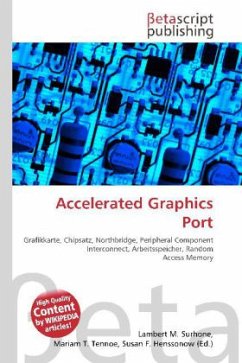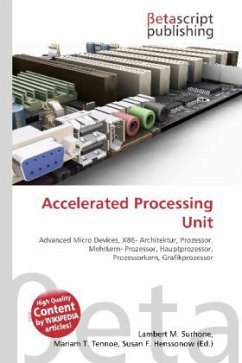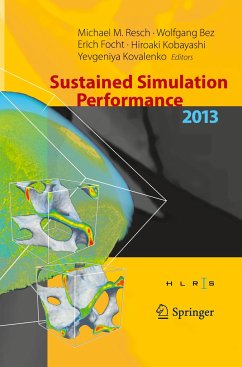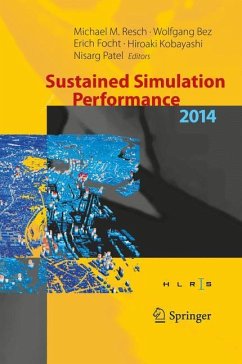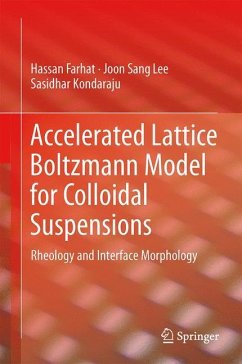
Accelerated Lattice Boltzmann Model for Colloidal Suspensions
Rheology and Interface Morphology

PAYBACK Punkte
38 °P sammeln!
Colloids are ubiquitous in the food, medical, cosmetics, polymers, water purification, and pharmaceutical industries. The thermal, mechanical, and storage properties of colloids are highly dependent on their interface morphology and their rheological behavior. Numerical methods provide a convenient and reliable tool for the study of colloids.Accelerated Lattice Boltzmann Model for Colloidal Suspensions introduce the main building-blocks for an improved lattice Boltzmann-based numerical tool designed for the study of colloidal rheology and interface morphology. This book also covers the migrati...
Colloids are ubiquitous in the food, medical, cosmetics, polymers, water purification, and pharmaceutical industries. The thermal, mechanical, and storage properties of colloids are highly dependent on their interface morphology and their rheological behavior. Numerical methods provide a convenient and reliable tool for the study of colloids.
Accelerated Lattice Boltzmann Model for Colloidal Suspensions introduce the main building-blocks for an improved lattice Boltzmann-based numerical tool designed for the study of colloidal rheology and interface morphology. This book also covers the migrating multi-block used to simulate single component, multi-component, multiphase, and single component multiphase flows and their validation by experimental, numerical, and analytical solutions.
Among other topics discussed are the hybrid lattice Boltzmann method (LBM) for surfactant-covered droplets; biological suspensions such as blood; used in conjunction with the suppression of coalescence for investigating the rheology of colloids and microvasculature blood flow.
The presented LBM model provides a flexible numerical platform consisting of various modules that could be used separately or in combination for the study of a variety of colloids and biological flow deformation problems.
Accelerated Lattice Boltzmann Model for Colloidal Suspensions introduce the main building-blocks for an improved lattice Boltzmann-based numerical tool designed for the study of colloidal rheology and interface morphology. This book also covers the migrating multi-block used to simulate single component, multi-component, multiphase, and single component multiphase flows and their validation by experimental, numerical, and analytical solutions.
Among other topics discussed are the hybrid lattice Boltzmann method (LBM) for surfactant-covered droplets; biological suspensions such as blood; used in conjunction with the suppression of coalescence for investigating the rheology of colloids and microvasculature blood flow.
The presented LBM model provides a flexible numerical platform consisting of various modules that could be used separately or in combination for the study of a variety of colloids and biological flow deformation problems.








